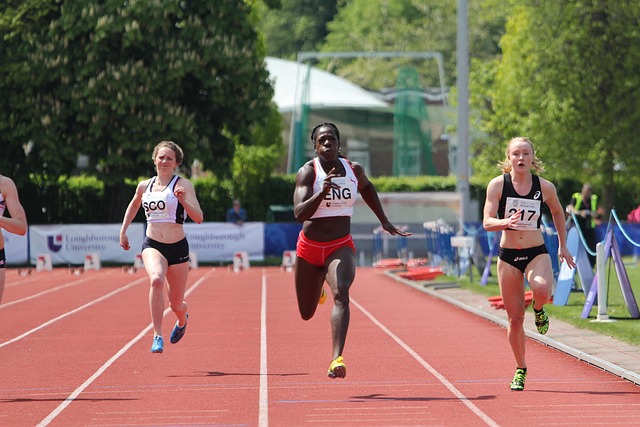College cross country teams are becoming increasingly multicultural, enriching team dynamics with varied perspectives and training methods. Navigating these differences requires sensitivity, fostering an inclusive environment through effective communication, open-mindedness, and mutual respect. Shared core values like resilience, teamwork, and respect enhance camaraderie and performance both individually and collectively. Coaches and athletes play essential roles in creating a positive team culture that prepares them to be respectful leaders in their communities.
“Unleashing the potential of a diverse college cross country team requires an understanding of culture and values. This article delves into the multifaceted impact of cultural diversity on team performance, highlighting the pivotal role of core values in fostering unity and excellence.
We explore strategies for coaches and athletes to navigate and celebrate differences, ultimately enhancing team dynamics. By examining these aspects, we aim to provide insights into how inclusive practices can revolutionize college cross country programs.”
- Understanding the Impact of Cultural Diversity in College Cross Country Teams
- Core Values and Their Role in Team Dynamics and Performance
- Fostering Inclusivity and Respect: Strategies for Coaches and Athletes
Understanding the Impact of Cultural Diversity in College Cross Country Teams

In today’s diverse world, college cross country teams are becoming increasingly multicultural, reflecting a rich tapestry of backgrounds and experiences. This cultural diversity brings both unique strengths and challenges to the sport. Athletes from various countries and cultures contribute different perspectives, training methods, and running philosophies, enriching team dynamics and performance. Embracing this diversity can foster a stronger sense of community within the team, enhance problem-solving skills, and promote creativity in strategies.
However, navigating cultural differences requires sensitivity and understanding. Communication barriers, differing training regimens, and varied approaches to competition can create obstacles. Coaches and teammates must be proactive in fostering an inclusive environment, ensuring everyone feels valued and supported. Effective communication, open-mindedness, and a commitment to mutual respect are essential to harnessing the benefits of cultural diversity in college cross country teams.
Core Values and Their Role in Team Dynamics and Performance

In college cross country, teams that thrive aren’t just made up of talented athletes; they’re crafted within a culture centered around core values. These shared beliefs and principles act as the foundation for every training session, race strategy, and team interaction. Values like resilience, teamwork, and respect create an environment where individuals support one another through grueling workouts and competitive pressures. This camaraderie fosters a strong team spirit that translates directly into improved performance on the course.
When runners embrace values like dedication and discipline, they push themselves to overcome physical and mental barriers. A culture that emphasizes open communication and trust enables athletes to share insights, strategize effectively, and learn from one another’s experiences. Such an environment doesn’t just enhance individual performance; it also cultivates a collective strength that makes the team more formidable in college cross country competitions.
Fostering Inclusivity and Respect: Strategies for Coaches and Athletes

In the dynamic landscape of college cross country, fostering inclusivity and respect is paramount for creating a positive team culture. Coaches play a pivotal role in shaping this environment by promoting diverse participation, ensuring every athlete feels valued, and encouraging open communication. Implementing inclusive practices involves actively seeking out and embracing different perspectives, abilities, and backgrounds within the team. This can be achieved through diverse recruiting strategies that go beyond traditional boundaries, fostering an atmosphere where athletes from all walks of life feel welcomed and represented.
For athletes, embracing inclusivity means adopting a mindset of respect and empathy towards their peers. Encouraging active listening and understanding different viewpoints strengthens team bonds. Athletes can contribute by showing genuine interest in their teammates’ experiences, being mindful of language and behaviors that may marginalize others, and actively participating in initiatives or discussions aimed at enhancing diversity and inclusion. Together, coaches and athletes can create a supportive network that not only enriches the cross-country experience but also prepares them to be respectful leaders in their future communities.






